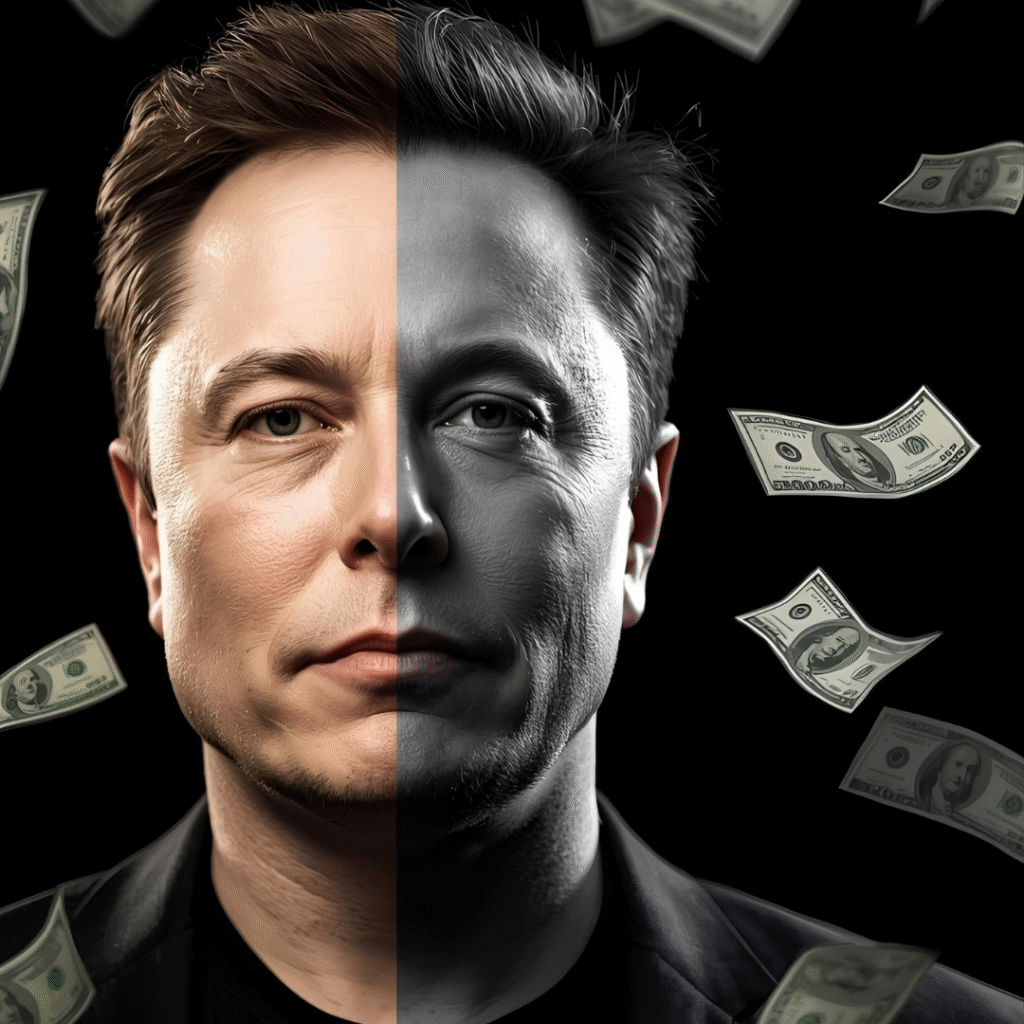Elon Musk, the billionaire entrepreneur behind Tesla, SpaceX, Neuralink, and The Boring Company, is one of the highest-paid executives in history. Often described as the world’s richest man, his annual income fluctuates dramatically depending on his companies’ performance, stock valuations, and compensation structures. But how much does Elon Musk actually make in a year? The answer is complex — and astonishing.
This article provides a full breakdown of Elon Musk’s yearly earnings, including his salary, stock awards, bonuses, and estimated net worth growth in 2025.
1. Elon Musk’s Official Salary: $0 from Tesla and SpaceX
Despite leading multiple billion-dollar companies, Elon Musk takes a $0 base salary from most of them — including Tesla and SpaceX.
Musk has stated publicly that he does not rely on a traditional paycheck. Instead, he earns through performance-based compensation packages tied to company growth and stock value.
At Tesla, for example, his compensation plan (approved in 2018) doesn’t include cash or stock grants by default. Instead, Musk receives stock options only when Tesla achieves specific milestones — such as market capitalization goals, revenue targets, and profitability levels.
2. Tesla’s $55 Billion Pay Package (2018–2028)
In 2018, Tesla shareholders approved one of the largest executive pay packages in history for Elon Musk — worth up to $55 billion over ten years.
This plan includes 12 tranches of stock options, each vesting when Tesla hits certain performance benchmarks. By 2023, Musk had already unlocked all 12 tranches due to Tesla’s meteoric rise in market value.
When exercised, these stock options granted Musk ownership of over 100 million Tesla shares, worth tens of billions of dollars.
So while Musk’s official salary is $0, his effective annual earnings from Tesla stock options have reached billions per year depending on Tesla’s share price.
3. SpaceX: A Massive Private Valuation
SpaceX, Musk’s aerospace company, is privately held, so its financials are not fully disclosed. However, SpaceX has become one of the most valuable private companies in the world, valued at over $180 billion in 2025.
As the majority shareholder (owning about 42–45% of SpaceX), Musk’s stake adds tens of billions to his net worth. While he doesn’t draw a salary, his ownership generates value through private funding rounds and share sales.
For instance, if SpaceX’s valuation rises by $20 billion in a year, Musk’s holdings could theoretically increase by $8–9 billion in value annually.
4. Other Companies: Neuralink, The Boring Company, and X (Twitter)
Musk also owns or holds major shares in several other ventures:
-
Neuralink – Developing brain-computer interfaces.
-
The Boring Company – Focused on tunneling and infrastructure.
-
X (formerly Twitter) – Acquired in 2022 for $44 billion.
While these companies do not contribute regular income, their equity value and potential future profitability add to Musk’s overall financial power.
In 2025, estimates suggest these ventures contribute between $2 billion and $5 billion in paper gains to Musk’s net worth annually.
5. Elon Musk’s Estimated Annual Income (2025)
Estimating Elon Musk’s annual income depends on how one defines “income.” He doesn’t receive a traditional paycheck, but his wealth grows through stock appreciation and asset value.
Based on available data and financial estimates:
| Source | Estimated Yearly Earnings (2025) |
|---|---|
| Tesla Stock Options | $10–20 billion (depending on market performance) |
| SpaceX Valuation Growth | $8–9 billion |
| Other Ventures (Neuralink, X, etc.) | $2–5 billion |
| Total Estimated Annual Earnings | $20–30 billion+ |
Thus, Elon Musk’s effective annual income (based on asset growth and equity value) could exceed $25 billion per year — making him one of the highest earners in human history.
6. Elon Musk’s Net Worth in 2025
According to current reports and financial tracking, Elon Musk’s net worth in 2025 fluctuates between $230 billion and $260 billion, depending on Tesla’s stock price and private valuations of SpaceX.
His wealth has grown dramatically from under $30 billion in 2019 to over $200 billion by 2025 — largely fueled by his equity holdings.
7. Taxes and Wealth Management
Musk’s wealth is tied to unrealized gains, meaning he doesn’t pay taxes on it until he sells stock or exercises options.
When he sold Tesla stock in 2021 to fund his Twitter acquisition, he paid over $11 billion in taxes, one of the largest individual tax bills in history.
He has also stated that he reinvests much of his wealth into research and innovation projects — particularly in renewable energy, space exploration, and artificial intelligence.
8. Comparing Musk’s Income to Other Billionaires
Even among billionaires, Musk’s earnings are unprecedented. For example:
-
Jeff Bezos (Amazon) — earns $80,000 salary + stock appreciation (~$5 billion/year).
-
Mark Zuckerberg (Meta) — earns $1 salary, main income from stock (~$3–5 billion/year).
-
Warren Buffett (Berkshire Hathaway) — modest salary of $100,000 + investments (~$2–3 billion/year).
Elon Musk’s annual earnings far exceed these, driven by Tesla and SpaceX’s massive valuations.
Conclusion
Elon Musk doesn’t receive a conventional paycheck — instead, his income is driven by the value of his companies and performance-based stock options. While his official salary remains $0, his estimated annual earnings exceed $20–30 billion, primarily from Tesla and SpaceX.
This makes Musk not only the richest person in the world but also one of the most unique cases in corporate compensation history. His wealth is a testament to high-risk entrepreneurship, innovation, and long-term vision that continues to reshape industries across energy, transportation, and space exploration.

